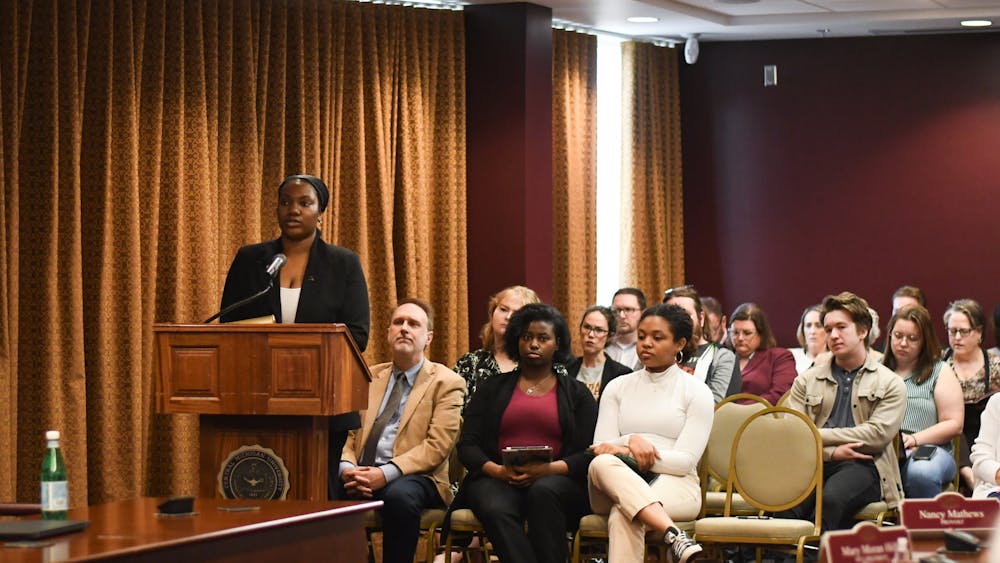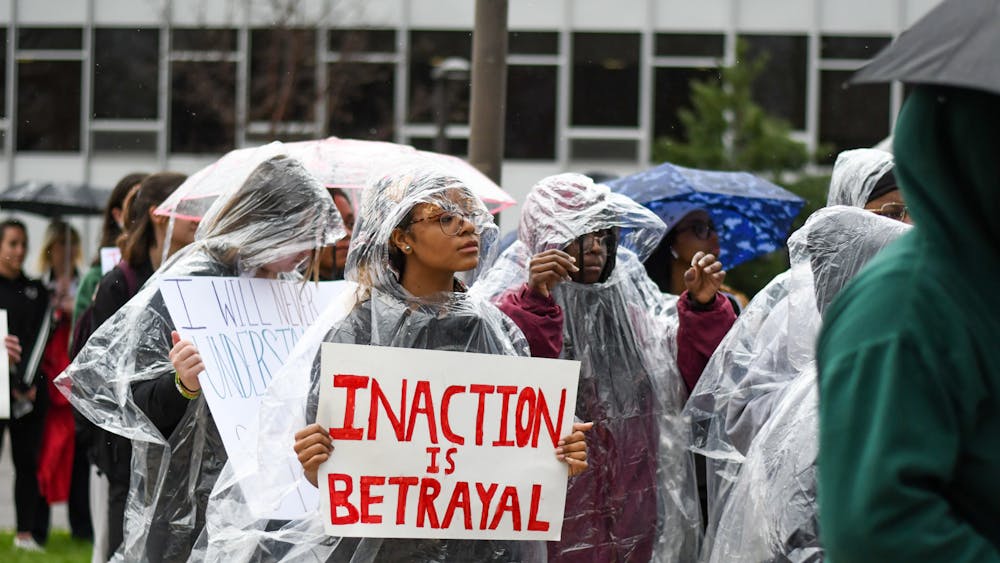Brian Calley talks Michigan's future after re-election
Michigan’s Lt. Gov. Brian Calley visited Central Michigan University to discuss the future of the state.
The recently re-elected Republican sat down with students to outline what the next four years holds for Michigan with Gov. Rick Snyder at the helm. With Michigan’s unemployment at a six-year low, and over 300,000 jobs added to the private sector over the last four years, Calley spoke confidently about where the state is headed.

Mount Pleasant
Sophomore Ottorino Schincariol asked if Calley had any ties to Mount Pleasant, which prompted a discussion about several issues relevant to students.
“I’m very familiar with this area. I won the senate seat nomination here, but then Rick called and asked me to join him on the ticket," Calley said.
Calley acknowledged the Saginaw Chippewa Indian Tribe and Soaring Eagle Casino and Resort as “big economic players," and said CMU is a pipeline for talent into Michigan’s workforce.
Calley also addressed Mount Pleasant’s decriminalization of marijuana. He said because of the disparity between different levels of government, people smoking marijuana in Mount Pleasant may believe they’re within the confines of the law. State police or other officials may still punish them under the law in following federal and state policy.
“Michigan needs a clear, legible set of laws," Calley said.
Detroit
The first major issue Calley touched on was on the struggling city of Detroit. On Nov. 7 Judge Steven Rhodes confirmed the city’s plan of adjustment, which Calley said is the “most successful, fastest municipal bankruptcy in America."
“The city council and mayor are working together better than we’ve seen in generations," he said.
The Michigan Economic Development Corporation is the state's marketing arm and lead advocate for business development, arts and cultural grants and overall economic growth. The MEDC offers a number of business assistance services and capital programs for business acceleration, entrepreneurship, strategic partnerships, talent enhancement and community development.
“People really do want to work,” Calley said. “But they might be struggling substance abuse or addictions."
The MEDC set a goal of putting 1,000 people from these communities back to work over the next year.
“Any government program that perpetuates dependency is cruel,” Calley said. “It’s our job to remove barriers to working. We have to restore a person’s ability to make it on their own on a case-by-case basis.”
Mental Health
Calley was most passionate about mental health reform. He said facilities for individuals with mental health issues are lacking and Michigan will work over the next few years to work on this problem.
“The first step was to eliminate the stigma," Calley said. “We wanted to remove the word "retarded" from statutes and forms, and instead say developmentally disabled.”
Calley supported Project Unify, a program CMU helps facilitate, which pairs developmentally disabled individuals with student athletes.
Great Lakes Issues
Chrysler Corporation sends approximately 600 trucks per day to Canada, the United States’ largest trading partner. Calley said the current bridge to Windosr is too old and its destruction would have an immediate and devastating impact on the economy.
Calley, along with other politicians concerned with the fate of the Great Lakes, said increased precautions against the spread of Asian Carp from the Chicago river are necessary.
Asian silver carp are known to leap out of the water when startled, disrupting commercial and recreational fishing operations. The Michigan DNR estimates the damages of invasive species in the United States to total more than $123 billion dollars annually.
“I’m confident that the Great Lakes States and Provinces of Canada will adopt good policies," Calley said. “But if the Asian carp come in, it will be through the Chicago river."
Calley said without support from the federal government, the ecological condition of the Great Lakes will deteriorate.
“With a president from Chicago, when Chicago doesn’t want to, it doesn’t look good” Calley admits, “But to protect the interest of one city over the entire midwest would be an unforgivable mistake by the Obama Administration."





